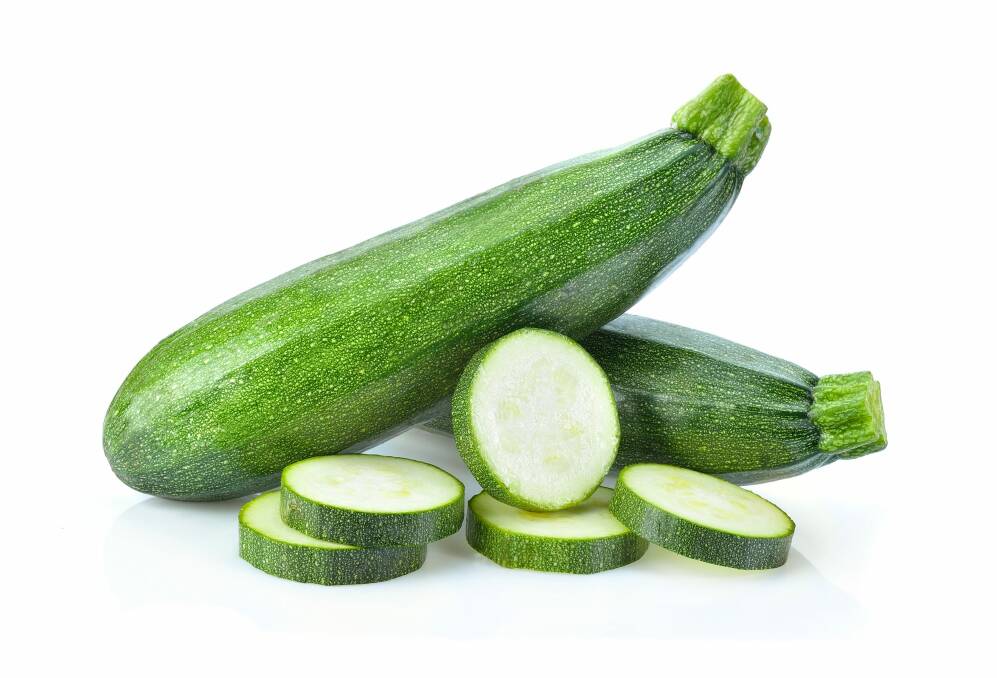You can never have too many zucchini (really).
Subscribe now for unlimited access.
$0/
(min cost $0)
or signup to continue reading
I wrote this as a joke today, as part of a fictional newspaper column written by the fictional market gardener, Broccoli Bill, desperate to sell his all too prolific crop. But as he began to give increasingly valiant ways to use zucchini, I realised he was right.

You never can have too many zucchini. You may lack time to do anything with them; your friends may duck around the corner when they see you arriving with yet another box full, but that is the fault of modern society which doesn't give us enough time to deal with zucchini, not with this most generous of veg.
This is the time when life begins to get hectic again, just as zucchini are at their most prolific. It is easy to take this for granted and forget how much you will long for a basket of zucchini in late autumn, especially perhaps those firm-fleshed round ones you can't buy in supermarkets, or the little finger-length, crisp ones to eat raw with anchovy sauce or pesto. I love them shredded and eaten like pasta with sauce – don't cook them, or they turn soggy. The heat of the sauce is all they need.
Your zucchini bushes are vigorous and prolific and disease resistant. The older they get, the more disease prone they become, which is one reason zucchini may get powdery or downy mildew – they lack resistance to it/them, as well as the recent wet, dry, hot, cold, blazing hot and dry again weather, which is just what mildew adores. That, and the leaves of elderly zucchini bushes.
So plant new bushes now. I promise that (almost certainly) by autumn the bushes you planted in spring will be either not producing, or sitting on a massive marrow that you somehow missed lurking under the leaves. The vigorous new bushes will be more frost resistant too.
This is also the time to plant more of all those summer veg that you hope will produce for at least six months, but actually succumb to blights and mildews. Cherry tomatoes planted now may fruit into winter; beans will give you a bounteous crop in autumn. If your silver beet have turned all spotty DON'T plant more, but pick every single leaf then feed well and hope – the new leaves should be blemish free and vigorous.
And if you plant artichokes now and treat them extremely well, they may even give you artichokes next spring.
But back to the zucchini … compost-fed ones really are more disease and frost resistant – I trialled them for three years, many years ago with different feeding regimes. Compost won on every count.
And never take your zucchini for granted just because they are easy to grow. The tiny crisp ones are a delight. Just imagine eating them with pesto or grilled till just browning on each side or sautéed in a little olive oil with a dash of lemon juice and black pepper or made into potato cakes except with zucchini or zucchini gingerbread or yellow zucchini pickles … and all you need is an absolute plenitude of firm, just-picked zucchinis to achieve any of these summer delights.
This week I am
- picking, eating and rejoicing in tomatoes
- feeling sorry for the brown edges on the hydrangea leaves – when the temperature reaches 'cook' there is not much you can do for them
- dancing just a little in the rain storms (not when there is lightning) and watching the moisture brighten the ginger lilies – there is going to be a glorious flowering this year
- picking and eating home-grown avocadoes – they don't ripen till they are picked and will last up to eighteen months on the tree, so if you grow a few varieties you can have them all year round unless the flying foxes or the currawongs get into them
- delighting in the little begonia covered with blooms that I neglected last year till it was just a withered stem – we took it outside and placed it in dappled shade and when we remembered to look at it again it was covered in flowers and new leaves and has been for the last three months sitting on its stool in the living room
- counting the weeks till my favourites, the Jonathon apples, ripen, and I will speak sternly to any wallaby who tries to pinch them. The wallaby will ignore me, of course. Wallabies have excellent taste and love Jonathon apples too.

